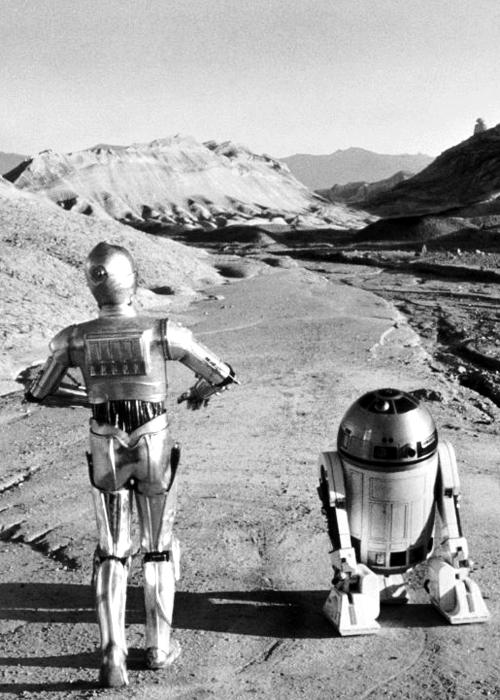Until deep into the twentieth century, most popular dreams of ETs usually centered on biology. We wanted new friends that reminded us of ourselves or were even cuter. When we accepted we had no Martian doppelgangers, a dejected resignation set in. Perhaps some sort of simple cellular life existed somewhere, but what thin gruel to digest.
Then a new reality took hold: Maybe advanced intelligence exists in space as silicon, not carbon. It’s postbiological.
If there are aliens out there, Sir Martin Rees feels fairly certain they’re conscious machines, not oxygen-hoarding humans. It’s just too inhospitable for beings like us to travel beyond our solar system. He allows that cyborgs, a form of semi-organic post-humans, could possibly make a go of it. But that’s as close a reflection of ourselves we may be able to see in space.
Soon enough, that may be true as well on Earth, a relatively young planet on which intelligence may be in the process of shedding its mortal coil. Another possibility: Perhaps intelligence is also discarding consciousness.
In “It May Not Feel Like Anything To Be an Alien,” Susan Schneider’s smart Nautilus article, the author asserts that “soon, humans will no longer be the measure of intelligence on Earth” and tries to surmise what that transition will mean. The opening:
Humans are probably not the greatest intelligences in the universe. Earth is a relatively young planet and the oldest civilizations could be billions of years older than us. But even on Earth, Homo sapiens may not be the most intelligent species for that much longer.
The world Go, chess, and Jeopardy champions are now all AIs. AI is projected to outmode many human professions within the next few decades. And given the rapid pace of its development, AI may soon advance to artificial general intelligence—intelligence that, like human intelligence, can combine insights from different topic areas and display flexibility and common sense. From there it is a short leap to superintelligent AI, which is smarter than humans in every respect, even those that now seem firmly in the human domain, such as scientific reasoning and social skills. Each of us alive today may be one of the last rungs on the evolutionary ladder that leads from the first living cell to synthetic intelligence.
What we are only beginning to realize is that these two forms of superhuman intelligence—alien and artificial—may not be so distinct. The technological developments we are witnessing today may have all happened before, elsewhere in the universe.•
Tags: Susan Schneider

